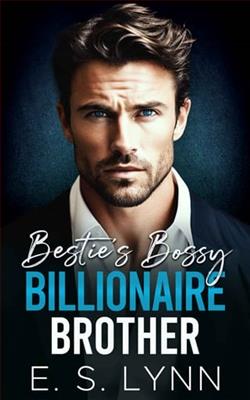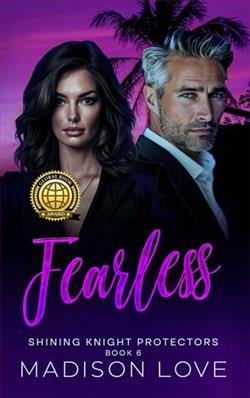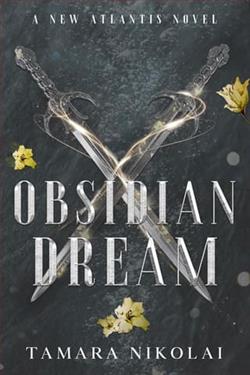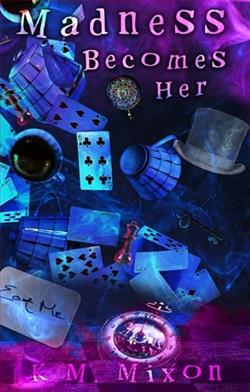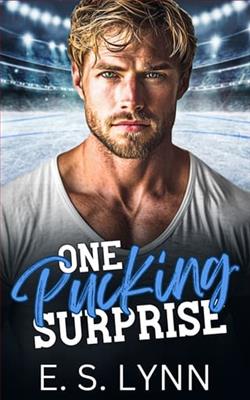Page 66 of The Last Stars in the Sky
The next morning, I wake early, gritty-eyed and freezing. The thermometer outside reads ten below zero, and it feels it, even with the triple layers I’m wearing; I can see my breath as I throw on another sweater. I stoke the fire and have just pulled on my coat and boots to head outside to fetch water when, to my surprise, I hear the creak of the deck steps and then the door, and Kevin is coming in with two brimming buckets.
“Th-thank you,” I stammer in my surprise. He gives me one of his nods. “You didn’t have to,” I add, as he dumps the buckets into the barrel in the corner of the kitchen.
“I don’t mind helping.”
“You could stay,” I blurt, because he’s obviously so helpful, and we could use someone like him here. A lot.
He stills, saying nothing, and I feel like I’ve crossed a boundary, like I’ve suggested something rude. Then he takes the empty buckets and heads outside again, all without saying a word.
After breakfast, Kevin checks our rabbit snares, which have not caught a single rabbit, and shows us how we’ve been doing them wrong, tying a neater loop, setting them in better places. After that, he chops a hole in the ice in the middle of the lake—which is no mean feat, since it’s over a foot thick—and explains, in his low, calm voice, using as few words as possible, how to fashion a tip-up ice trap with some wood and wire from my dad’s cupboard, to catch trout.
“Use live bait and fish near the surface,” he tells us. “Trout don’t go too deep.”
He even takes a look in our greenhouse, offers Ruby a few words of praise, telling her it looks like she has about sixty more days before the potatoes can be harvested. He also gives some advice to Mattie and Kyle about how to make it warmer—if we have any bubble wrap lying around, we can insulate the windows, and if we raise the beds a few inches off the ground they won’t be subject to frost.
“Ventilation isn’t a problem, at least,” he says with one of his faint smiles; the greenhouse isn’t well enough constructed.
All in all, Trapper Kevin feels like a gift from providence, a miracle heaven-sent and so desperately needed, teaching us so much in so little time. In his calm, quick actions, I seepossibility; I see a future. If we fish, and trap, and plant in the spring, we can have enough food to survive. Just. Maybe.
And that’s enough hope to keep me going, at least for now, despite the grief that still weighs me down like an anchor, steadying me and reminding me of who I am, yet still an unbearable weight.
Kevin leaves after lunch; I don’t think he’s said more than a hundred words the whole time he’s been here, and yet I’m so thankful for what he has done. I considered asking him to stay again, but the absolute solitariness of him kept me from really even considering such a possibility.
And yet, as he leaves with a nod of farewell for Kerry and me—the girls are in the greenhouse and Kyle is inside—I see the look of naked grief pass across Kerry’s face like a shadow, and I ache for her. She went to find Kevin as much for herself as for the beaver, if not more so; as he walks through the trees, I can see she’s grieving not just the loss of the man himself, but the hope and possibility he presented—a partner, a family, alife, even in the midst of the hopeless scratching of our existence.
It’s hard not to hope for more, even in the midst of so much difficulty; just as I hope Daniel and Sam will return, Kerry has hoped for this. And as Kevin disappears between the trees, back to his cabin, I see something harden in her face and I know that hope has died.
“Will he come back?” I ask quietly, and she shakes her head.
“No.” She sounds so definitive, I wonder what they talked about last night, what promises he didn’t make. I don’t feel I can ask.
With a sigh, Kerry turns back to the cottage. “I knew he wouldn’t,” she says wearily. “So more fool me, eh?”
Did she ask him to? I wonder. Again, I don’t press. “I’m sorry,” I say instead, and she simply shakes her head.
As we head inside, a sudden, jagged cry splits the air and we both freeze.
“What—” The word comes out of me in a breath.
Then we hear Mattie’s voice, high and panicked, caught between a screech and a sob. “Mom! Help me!”
TWENTY-TWO
The first thing I see is blood—so much blood, spurting up and dripping down, bright, bright red. Then I see the broken glass of the greenhouse, an entire pane nothing but jagged shards, and Ruby clutching her arm, her face pale, her body swaying. Before either Kerry or I have made it into the greenhouse, she crumples to the ground. Mattie’s hands are pressed to her face as she looks down at her sister in a kind of dazed terror.
“What happened?” I demand. I kneel next to Ruby, turn her over and then blanch. There is a huge, jagged laceration on her arm. There is even more blood than I thought—it’s soaking into the ground, into my jeans. My fingers are already smeared with it.
“She—she fell,” Mattie whispers hoarsely. “Into the glass.”
“We need to make a tourniquet.” Kerry’s voice is low and authoritative, urgent. “We need a scarf or something. Quick!”
“I’ll get one,” Mattie says, and starts sprinting away.
I cradle my daughter while blood continues to spurt out of her, feeling numb, sick, and utterly terrified. This is the kind of emergency I’ve been dreading, that I’ve been waiting for, knowing it could be the end of us. It could be the end ofRuby.
“What do we do?” I whisper to Kerry. I have no idea. I can’t think; I can barely form sentences.
“I think she may have cut an artery.” Kerry’s voice is calm, but with a tremor in it. “We need to apply pressure, get the artery against the—the bone, I think, to help staunch the bleeding.”








